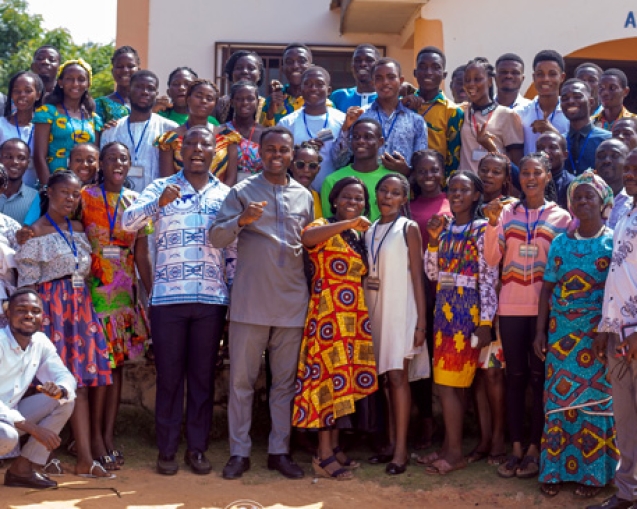In recent years, the rapid advancement of Artificial Intelligence (AI) has sparked profound questions and discussions within Christendom. As AI becomes increasingly integrated into various aspects of our lives, including the church, it’s essential for believers to engage in theological reflection to discern its implications for faith and practice.
WHAT IS AI?
Artificial Intelligence refers to the development of computer systems that can perform tasks that typically require human intelligence, such as learning, problem-solving, and decision-making. AI algorithms analyze vast amounts of data to identify patterns and make predictions, enabling machines to perform tasks with remarkable accuracy and efficiency.
HOW CAN THE CHURCH USE AI?
The church can harness the power of AI in numerous ways to enhance its ministries and outreach efforts. AI-powered chatbots can engage with individuals seeking spiritual guidance or information about Christianity, providing personalized responses and resources tailored to their needs. Additionally, AI algorithms can analyze large datasets of scripture, theological texts, and historical documents, offering insights and interpretations that aid in theological study and reflection.
HOW IS THE CHURCH ALREADY USING AI?
Already, we see AI being integrated into various aspects of church life. Facial recognition technology is used for security and attendance tracking in some congregations, while AI-powered translation tools facilitate multilingual communication during worship services and mission trips. Additionally, churches utilize data analytics platforms to analyze member engagement and tailor ministry programs to better meet the needs of the church.
Opportunities and Challenges of AI to the Church
The opportunities presented by AI for the church are vast. AI can help streamline administrative tasks, improve communication and engagement with congregants, and enhance the effectiveness of evangelistic efforts. Through AI-powered tools, the church can reach new audiences, foster deeper connections with existing members, and adapt to the evolving needs of society in the digital age.
However, along with these opportunities come challenges and potential threats. Ethical concerns surrounding data privacy, algorithmic bias, and the dehumanization of interpersonal interactions must be carefully addressed. Moreover, there is a risk of AI technology being misused or manipulated for malicious purposes, posing threats to the integrity of Christian values and beliefs.
THEOLOGICAL REFLECTION OF AI
As Christians, our response to AI must be grounded in theological reflection and ethical discernment. While AI offers exciting possibilities for enhancing ministry and outreach, it also raises profound questions about the nature of humanity, the role of technology in God’s plan, and the ethical implications of artificial intelligence.
At its core, AI is a human creation—a product of human ingenuity and innovation. As such, it reflects the inherent creativity and intelligence endowed by God to humanity, who was made in His image (Genesis 1:27).
However, AI also poses challenges to traditional theological concepts such as free will, moral responsibility, and the nature of consciousness. Can AI possess genuine autonomy and moral agency? Can it exhibit qualities such as empathy, compassion, and spiritual discernment? These questions invite theological reflection on the unique attributes of humanity and the limitations of artificial intelligence.
Ethical considerations are also central to theological reflection on AI. As Christians, we are called to uphold values of justice, compassion, and human dignity in all areas of life, including the development and deployment of AI technologies. The use of AI in surveillance, predictive policing, and social profiling raises concerns about privacy, discrimination, and social justice—issues that demand careful theological scrutiny.
Moreover, theological reflection on AI ethics must grapple with questions of power, control, and accountability. Who determines the ethical standards governing AI systems? How do we ensure that AI technologies serve the common good and promote human flourishing rather than reinforcing existing inequalities and power dynamics? These are complex ethical dilemmas that require theological wisdom and discernment.
Beyond ethical considerations, AI also has implications for Christian ministry and worship. The use of AI-powered chatbots, virtual assistants, and digital platforms opens new avenues for evangelism, discipleship, and pastoral care. AI algorithms can analyze scripture, theological texts, and historical documents, providing insights and interpretations that aid in theological study and reflection.
However, theological reflection on AI in ministry must also grapple with questions of authenticity, relationality, and spiritual formation. Can AI-mediated interactions truly nurture deep, meaningful relationships and foster spiritual growth? How do we ensure that technology enhances rather than detracts from the embodied, communal nature of Christian worship and fellowship? These are theological questions that demand careful consideration in the age of AI.
One of the central theological questions surrounding AI is its relationship to divine revelation. Can AI truly discern the will of God or deliver inspired insights into scripture? While AI algorithms can analyze vast amounts of data and identify patterns, they cannot replace the spiritual discernment and wisdom that comes from a personal relationship with God. As Proverbs 3:5-6 reminds us, “Trust in the Lord with all your heart and lean not on your own understanding; in all your ways submit to him, and he will make your paths straight.”
The Response of the Church
In light of these theological considerations, how should the church respond to the rise of AI? First and foremost, the church must recognize that AI is a tool—an enabler, not a substitute for the work of the Holy Spirit. While AI can assist in data analysis, multimedia production, and research, it cannot replace the role of prayer, sermon preparation, spiritual discernment, the will of God, and reliance on God’s guidance in the life of the believer.
However, this does not mean that the church should shy away from embracing AI. On the contrary, the church can and should leverage AI to enhance its mission and ministry efforts. As Romans 12:2 exhorts us, “Do not conform to the pattern of this world, but be transformed by the renewing of your mind. Then you will be able to test and approve what God’s will is—his good, pleasing and perfect will.”
AI, when used wisely and ethically, can serve as a powerful tool for advancing the Kingdom of God. It can help churches reach new audiences, engage with congregants more effectively, and adapt to the changing needs of society. However, it’s essential to maintain a critical perspective and guard against the potential pitfalls of AI.
Already, we see AI being utilized in practical ways within the church. Data analytics platforms help churches understand their members’ preferences and needs better, enabling them to tailor their ministries accordingly. AI-powered multimedia tools enhance worship experiences, while automated communication systems streamline administrative tasks.
Conclusion
In conclusion, the rise of AI presents both opportunities and challenges for the church. By engaging in theological reflection and ethical discernment, the church can harness the potential of AI to advance the Kingdom of God while safeguarding its core values and beliefs. As Ephesians 5:15-16 urges us, “Be very careful, then, how you live—not as unwise but as wise, making the most of every opportunity, because the days are evil.”
Let us, therefore, prayerfully consider how AI can be used to glorify God and further His Kingdom, trusting in His guidance and wisdom every step of the way.


















